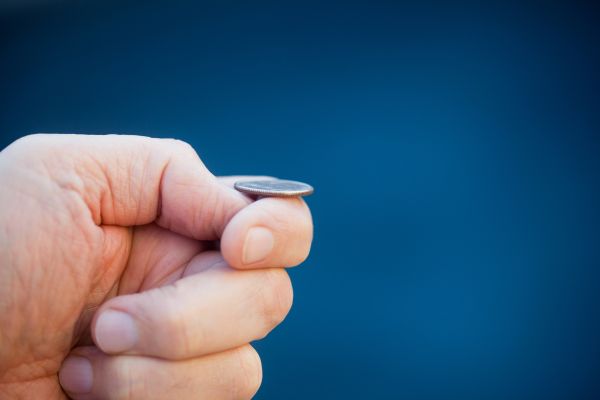A silver coin spins high into the air—glinting, rotating, rising. It reaches its peak, suspended for a split second above the green expanse of a football pitch in Naples, before gravity pulls it back down. Still spinning, it drops and lands softly in the short-cut grass. Shadows fall over it—players, referees, and officials crowd around, peering down with tense anticipation.
Just moments earlier, West German referee Kurt Tschenscher had blown the final whistle. The UEFA Euro 1968 semi-final between hosts Italy and the Soviet Union had ended 0-0 after extra time. Today, we’d expect a penalty shootout—but this was 1968. Back then, there was no such rule. With no goals and no other option, the match would be decided by a coin toss.
At the center circle, Italian captain Giacinto Facchetti stood face-to-face with Soviet captain Albert Shesternyov. Referee Tschenscher pulled a silver coin from his pocket and offered the choice to Facchetti.
“Heads or tails?”
Wiping sweat from his brow, still catching his breath, Facchetti replied, “Heads.”
The coin flew into the air.
Seconds later: “Heads,” the referee announced.
The Italians erupted in celebration at the Stadio San Paolo (now known as Stadio Diego Armando Maradona), having advanced to the final not with a goal, but with luck.
A Snapshot of Euro 1968

Euro 1968 was only the third edition of what has become one of the most prestigious football tournaments in the world. With just four teams qualifying for the final tournament, every match had massive weight. The semi-final clash between Italy and the USSR was a gritty, hard-fought battle—neither side could find the breakthrough after 120 minutes.
But this was before the age of penalty shootouts, before goal-line technology or VAR. So when the scoreboard read 0-0 at full time, the rules dictated something almost unthinkable today: a coin toss would decide who reached the final.
From Chance to Champions

Following their coin toss victory, Italy advanced to the final to face Yugoslavia. That match ended in a 1-1 draw—but this time, no coin toss. Instead, the match was replayed two days later. Italy won 2-0, securing their first-ever European Championship title.
The strange resolution of the semi-final sparked discussion across the footballing world. The need for a fairer, skill-based way of resolving drawn matches at such high levels became undeniable.
Just two years later, in the 1970s, the penalty shootout was introduced internationally—forever changing the landscape of knockout football. Coin tosses would become a relic of the past.
A Curious Legacy

The Euro 1968 coin toss remains one of the most unusual and debated moments in international football history. For Italy, it was a lucky break that led to glory. For the Soviet Union, it was a painful twist of fate. And for fans of the game, it’s a story that reminds us just how far football has come—from the randomness of coin tosses to today’s high-stakes shootouts.
If you enjoyed this football oddity, check out another incredible twist in European Championship history:
How Denmark Won Euro '92 Without Qualifying
